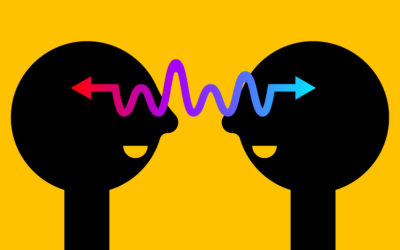Quick Hits
Daily brief research updates from the cognitive sciences
We’re back to the debate on diversity in teams and whether this is beneficial or not?
Yes, indeed.
There are two sides to the argument: one is that lower diversity increases efficiency. Similar people may react in similar ways and understand each other better and have less conflict. The second is that diversity brings a broader set of skills, attitudes, and personalities to the table – but may cause friction and lack of agreement.

So what is it?
Well, as you know we have developed team cohesion assessments and our data shows that there seems to be a sweet spot of diversity – so maybe we should talk about optimal diversity. Note I’m talking of personality diversity here.
And is this what these researchers found?
This recently published study looked at environments that business were founded in and found that the environment defined whether diverse teams were successful or not. So it seems like the question is not whether diversity is good, but under what conditions diversity is good, or better.
Pray, explain more.
This group of researchers from Carnegie Mellon University (CMU), Stanford University, and INSEAD looked at alumni from Stanford and found 140’000 that had started their own business and then reviewed 1’060 new ventures.
That’s a lot!
Yes, that is correct: this is a massive dataset and ranged from 1960!
Oh wow, and what did they find?
Well, they looked at “functional diversity”, not personality diversity that we measure, which is the range of roles and specialities people have. But it wasn’t a clear cut answer as to whether diverse teams were more successful.
Oh!
That is until you take the environmental conditions into account. Startups that were founded in more dynamic and chaotic times, recessions, changes in market dynamic such as the tech revolution, and had more diversity were much more likely to succeed. In contrast, in stable times team diversity was less important.
Also specifically if dynamism increased over lifetime the diverse teams were more likely to be successful. However, if dynamism decreased over lifetime then diverse teams were actually less likely to be successful.
Ummm, that kind of makes sense
Yes, when times are dynamic, the different perspectives and expertise help teams to be effective, manage the challenging times together, and even thrive. The same applies if the markets are becoming increasingly dynamic. But this diversity can be a hinderance in stable or less dynamic times.
So environments are crucial?
Yes, something that is underestimated in much business rhetoric. Functional diversity it seems, according to this research at least, is best in dynamic times only. In more stable times not so.
And how do we predict that?
Well, if I could predict that I would be a rich man – diversity may therefore be a good hedge but sometimes boring and uniform may be best also!
But what about other forms of diversity?
Gender, age, race, and others, weren’t measured here but there is plenty of evidence to show that diverse companies outperform less diverse companies. You may want to read this longer read on various forms of team performance and underrated contributions to this.

Andy Habermacher
Andy is author of leading brains Review, Neuroleadership, and multiple other books. He has been intensively involved in writing and research into neuroleadership and is considered one of Europe’s leading experts. He is also a well-known public speaker, speaking on the brain and human behaviour.
Andy is also a masters athlete (middle distance running) and competes regularly at international competitions (and holds a few national records in his age category).
Reference
D. Carrington Motley, Charles E. Eesley, Wesley Koo.
Born into chaos: How founding conditions shape whether ventures survive or thrive when experiencing environmental change.
Strategic Entrepreneurship Journal, 2023
DOI: 10.1002/sej.1461
More Quick Hits
The Surprising Effectiveness of Coaching in Diminishing Burnout Symptoms
Different areas of the brain are associated with empathy – this new research shows how brain regions synchronise to induce empathic responses.
When Love Overrides Other Needs
Different areas of the brain are associated with empathy – this new research shows how brain regions synchronise to induce empathic responses.
The Negative Social Impact of Dealing with AI in the Workplace
Different areas of the brain are associated with empathy – this new research shows how brain regions synchronise to induce empathic responses.
How the Gut Influences Brain Development in Babies
Different areas of the brain are associated with empathy – this new research shows how brain regions synchronise to induce empathic responses.
Your Brain’s Own Cannabinoid Molecules Calm You Down
Different areas of the brain are associated with empathy – this new research shows how brain regions synchronise to induce empathic responses.
Role of Dopamine in Speed and Accuracy of Decisions
Different areas of the brain are associated with empathy – this new research shows how brain regions synchronise to induce empathic responses.






